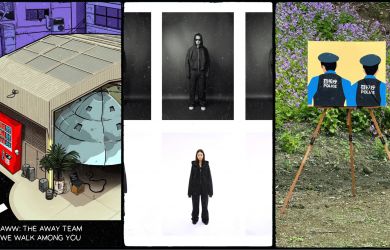
December 17, 2009
Rose Colored Glasses International
A Tokyo-based businessman lends a hand to poor children in the Philippines
By Metropolis
Originally published on metropolis.co.jp on December 2009

Photo Courtesy of Rose Colored Glasses International
It’s one of the paradoxes of the NPO world that the very people who feel moved to devote their lives to others are often plagued by feelings of cynicism and helplessness. Yet Robert Bitzer, director and founder of Rose Colored Glasses International, seems to have escaped this occupational hazard completely. The Canada native’s optimism is evident even in the name of his organization. “However bad your situation is today, tomorrow is always a new beginning for a better life,” he says.
Although based in Tokyo, RCGI is dedicated to improving the welfare of impoverished children in the Philippines. The idea for the NPO was born out of the destruction of the 2004 Indian Ocean tsunami. Bitzer, who was living in a beach house in Phuket, survived while many around him did not. The experience forced him to reevaluate his priorities and make good on a promise made in his youth.
“I had studied aikido on the island of Cebu,” Bitzer explains, “and promised myself that after becoming successful, I would return the favors I received from the wonderful Filipino people there. After many years, I learned to measure success in terms other than financial, so after the tsunami I felt it was the time to start giving back.”
Bitzer began his volunteer work in 2005, but it wasn’t until 2008 that the government granted RCGI the status of a registered NPO. RCGI focuses on programs that improve the education, shelter, health and nutrition of kids all over the Philippines. Some of their main projects are in Palawan, a group of islands off the coast of Malaysia between the Sulu and South China Seas.
One such project is Sarah’s School for the Deaf, which teaches sign language to kids and then offers them a basic education. Only a fraction of hearing-impaired Filipinos ever receive instruction in sign language, and hundreds of thousands spend their lives unable to communicate beyond rudimentary gestures, with limited or no means for self-support. The school, though receiving no government funding, also manages to provide students aged 5 to 40 with food and shelter.
RCGI places great importance on job placement and education as a means to help people rise out of indigence. “Just giving money never works. It has, in a way, become a ‘mission’ to help people help themselves out of dire poverty.”

Photo Courtesy of Rose Colored Glasses International
This ethos was evident even in the group’s first project: sponsoring a girl named Crisel and her relatives. Bitzer first met the family because they were caretakers for some land he bought. As Crisel was not in school, she guided him around, pointing out where to find water and which plants could be used as medicines.
Impressed by Crisel’s intelligence and her dream of becoming a teacher, Bitzer wanted to make sure she received an education. The family, which has 12 members, was struggling to obtain the basic necessities, much less the clothes and supplies needed for the children to attend school. So Bitzer made a deal with them.
“I would see to it that Crisel [went] to college, but the family must in return keep her safe from the boys so that she doesn’t end up with two children at 17 like her sister, and continue the cycle of poverty.”
Bitzer offered the family occasional work on the property, and through RCGI’s connections, Crisel’s mother and sister got jobs as maids. This little bit of a leg-up has made a huge difference: all the children are back in school, the family has built a new nipa frond hut, and they’ve started a business selling woven rattan baskets. RCGI continues to support and encourage them in the hope that all of the children will finish high school and pursue jobs or higher education.
The NPO is taking on more projects this year, including the establishment of a school for street children in Manila and a group home in Cebu. Certainly, Bitzer is aware of the modest scope of these efforts, but doesn’t see that as a cause for despair.
“We at Rose CGI are just doing our very small part and invite others to join us in our efforts. We do have the means to help many of these children if only we decide that is what we want to do.”
To find out more about Rose Colored Glasses International, see www.rosecgi.com.







